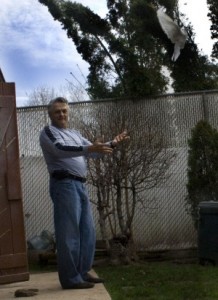
Tom Strato, a 39-year veteran of the New York City Police Department, walked into his backyard pigeon coop on Staten Island, N.Y., and reached for a white racing homer tagged RBC-548. A relative of the pigeon had brought him second place at a competition last year. He held it tight to prevent it from flying off, and the bird nuzzled his chest.
He wiped his thumb on the loft’s wall and collected a layer of “pigeon powder,” a white sediment that is released from the birds’ wings and shows they are healthy, he said. Strato reached down and dragged his hand through a bucket of dried corn pellets, grains, Canadian peas and flax seed — the pricey meal he feeds his 70-plus pigeons every day.
The sport “gives you enormous responsibility,” Strato said. While some animal activists say pigeon racing is cruel, he credits it with keeping him out of trouble as a teenager in 1950s Brooklyn. “For a young kid, it’s the greatest thing,” he said, and released the bird into the air.
Like other pigeon racing enthusiasts across the country, Strato has been on the defensive since the animal rights organization People for the Ethical Treatment of Animals (PETA) began campaigning to prevent the airing of a new reality show featuring pigeons racing, saying the sport is inhumane. But breeders say such criticism is for the birds – and that racing is a fun sport like any other and can be a valuable educational tool to teach kids such things as responsibility. Many hope the new show will shed light on the positive aspects of the ancient practice.
Long before pigeon racing became a sport, the birds were a widely used communication tool around the world. Reuters News Agency, for instance, operated a live telex service using homing pigeons. They were also extensively used by the European and American military during the World Wars.
The first official pigeon race took place in the United States in the 1880s. And up until the 1950s, it remained a popular sport, until gradually declining in the face of more modern forms of entertainment.
The sport lives on in races each weekend across the country, with a select but growing group of enthusiasts. In a typical competition, pigeons compete to be the fastest one to return home from the race start, traveling between 40 to 60 mph, for up to 600 miles. Most races award a few hundred or thousand dollars, though a top national contest, the Snowbird Classic, will dish out a grand prize of $25,000 for 2010.
Seeking to show the “intensely competitive and bizarrely fascinating world of pigeon racing” and once again bring the tradition into the public eye, Animal Planet will soon begin filming a reality TV show on races in Brooklyn, N.Y. The show will star none other than boxer Mike Tyson, who is a racer himself.
In response, PETA announced a campaign to prevent the show from airing, saying the sport is cruel to animals because it forces birds to race home to their mates in bad weather and risk being killed by natural predators. PETA also says the series will encourage a slew of copy-cat racers who are ill-prepared to care for the birds.
“When pigeons are used in these races, the birds aren’t voluntarily participating in this,” said Lisa Watney, a spokesperson for PETA. “It’s not a
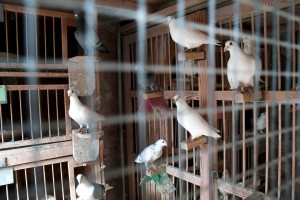
romantic sport — it’s a pastime that costs birds their lives.”
But racers say PETA is wrong, arguing that such misconceptions denigrate a worthy sport.
“There is always an assumption of the negative, like we are doing it just for the money,” said Deone Roberts, sports development manager for the American Racing Pigeon Union, out of Oklahoma City.
Vitamins, food and shelter for the birds can cost thousands of dollars per year, far exceeding most prize money, she said. So most racers do it for the simple pleasure of breeding and racing the birds.
“The people who do it for a hobby really get off on the birds,” she said.
As proof of its value, Roberts said many schools have incorporated pigeon racing into their educational programs.
“Kids just relate better to the animal, so it opens up the way for other learning, across the curriculum,” Roberts said.
Such is the philosophy of Ron Shumaker, a seventh-grade teacher in Enterprise, Miss., who uses his birds to teach children in grades four through six. A racer himself, he received funding from a local power company to introduce racing at six schools in the state. Students help feed, water and maintain the birds, and not only race them, but also use the animals in classroom activities.
How exactly do the birds help him teach math?
“If the birds were released at 8:15 in the morning, and they arrived at 8:55, then I ask my kids to give me that in yards per minute,” Shumaker said. “Rate is a mathematical formula – it makes no difference how you learn it.”
The same goes for biology.
And then there’s history.
One lesson involved the tale of a plucky pigeon called Cher Ami. Ami saved the lives of more than 200 soldiers in the U.S. Army’s 77th Division after it had fallen behind enemy lines and was being accidentally bombed by allied forces in World War I, according to Andrew D. Blechman, the author of “Pigeons: The Fascinating Saga of the World’s Most Revered and Reviled Bird.” After its death, the bird was stuffed and is displayed at the Smithsonian Institute.
As to the effect the Animal Planet show might have on pigeon racing, many racers are optimistic.
“It will really show how much fanciers love their birds, and it will show the depth of the sport and hobby,” said Chris Ferrante, who runs a pigeon racing Web site out of Brooklyn. “There is no promotion like a prime-time show.”

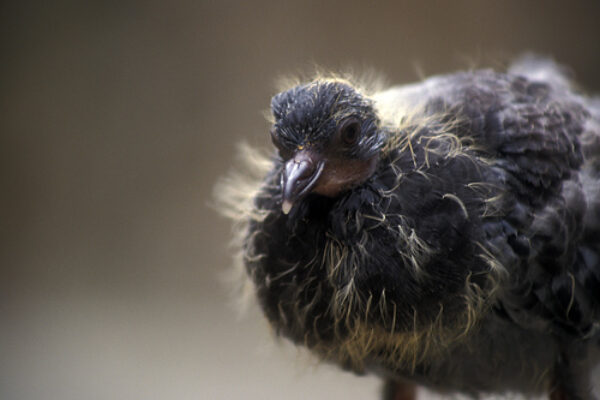
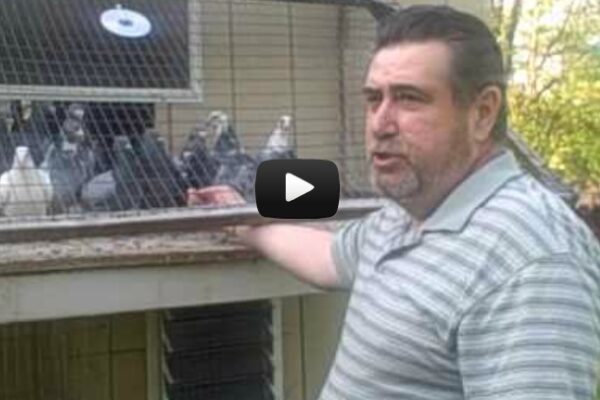
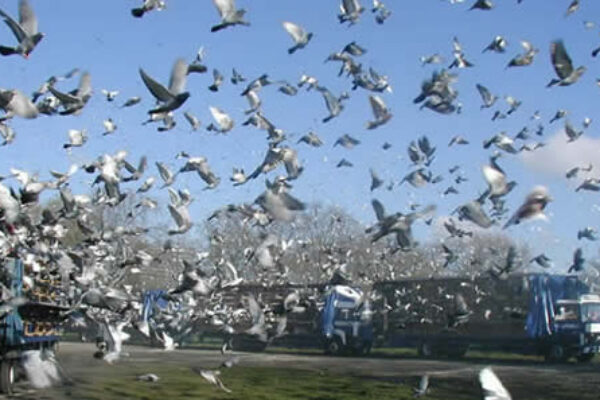
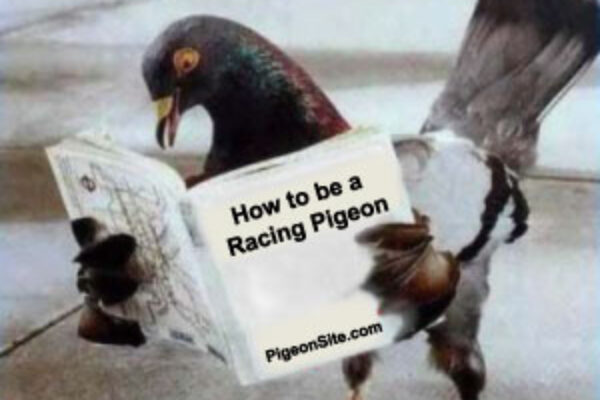
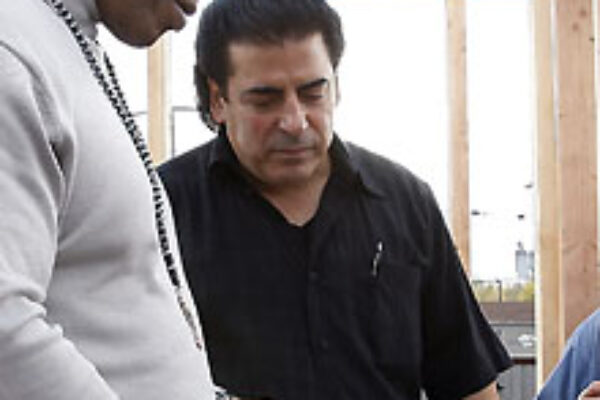
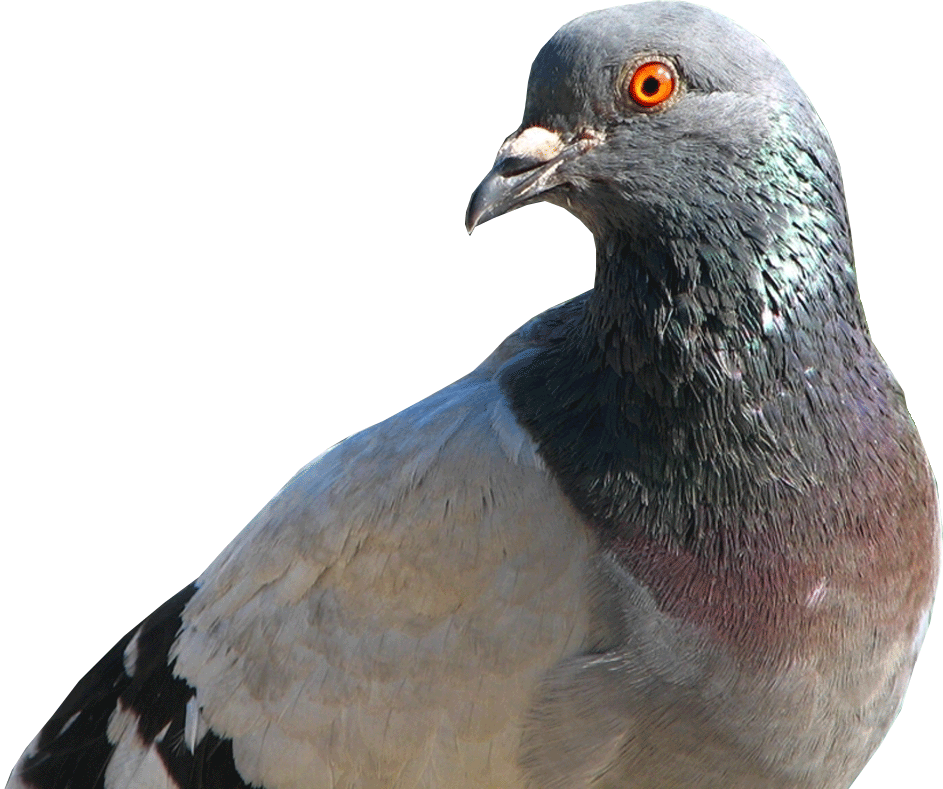

The losers have their necks broken, are drowned in buckets of water or are gassed with car exhaust.
What a noble sport.
Well, yes, pigeons racing can be cruel. Its all up to how the fancier goes about the raising, training and culling the birds. When raising the birds they should be provided with all the healthy grains and grit and housing to be raised in a healthy way. Racing will naturally be hard on some birds and they need training to be able to navigate home, they need to be taught to eat in the wild, a bird out for several days needs to find food to it from getting malnourished. Culling can be done in a humane manner similar to a processing plants methods.
PETA acts out of ignorance and a sense of self righteousness. I think if there is a way to educate them we will all be better served. Cruelty to animals happen out there and PETA would do well seeking out those (dog fighting, puppy mills, etc.).
PETA is NOT an “Animal Welfare” organisation. They are extremist vegans whose agenda is to “liberate” all animals from “human slavery”.
They are so off the planet they have been caught on CCTV stealing peoples pets and killing them to free them from their loving homes.
PETA has no credibility and you should expose them at every opportunity.
https://www.petakillsanimals.com
If PETA is so worried about the racing pigeon amd the brutal treatment. I am wondering, Why aren’t They worried about Duck hunting, where they straight up get killed for fun?
peta does not care about our birds or any other animal they just want to create conflict I think they make way to much money & create way to many problems & don’t do anything productive Not sure how a minority group has so much influence on our laws I don’t believe its right or constitutionally right they separate small groups pass laws go to next group this has to stop animals were put here for our pleasures I no that sounds barbaric but look around we eat chickens cows pigs exc they have farms for chickens & if those places aren’t inhumane there is no such thing. But I love animals sounds ridiculous after that I know. I don’t believe in treating anything cruel animal or whatever I believe if you kill an animal you should eat it or have a very good reason for doing so. I also think its more about how the animal lives then how it dies For instance take chickens if it is to be eaten I don’t think it should have to live in a cage 1′ square until you kill it that’s a terrible life & inhumane to me Now take the same chicken let it run the yard be with other chickens get fed & watered everyday free that’s a much better life somehow the focus has been changed from how they live to how they die when death is death but life now that can be so different.
Our racing pigeons are the derived from the rock dove when mixed with other breeds. Consequence of this is the fact that when the pigeons find the going tough because of weather or predators, they find refuge in crevices of hills and rocks and settle there. Proof of this can be seen in the cliffs and rocks round our small island and on the southern shores of Sicily. They won’t be pampered anymore like they are when under our care, but most of them prefer that natural habitat. So once they are on the wing and away from home they do have a choice whether to come to the loft where life is made easy for them or go to rough it for the rest of their live on the rocks.
Peta picks and choses it’s “pets”. Protection of raptors is an example. The passenger pigeon is gone but they work to increase the raptor population. Song birds and band tail pigeons be damned? We are “feeding” their selected pet species and they still are not satisfied. I still want a bumper sticker that says, “GOD will judge me, not PETA!
“GOD will judge me, not PETA!” That’s a Good one!
Fancier are LOVING and RESPONSIBLE PERSONS